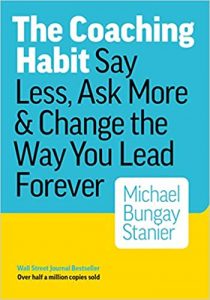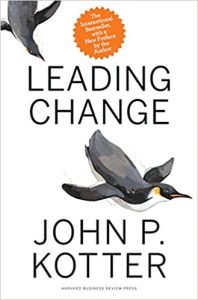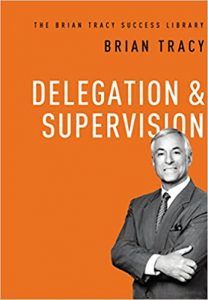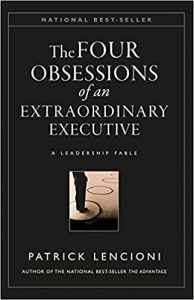I thought this was an excellent book.
I appreciate the authors writing style (causal and with good humor) and how formulaic the chapters are.
This book is easy to consume in a couple of 1-2 hour sessions depending on your reading speed.
If you are leading people, you know that asking great questions is an important part of your job. The coaching habit gives you 7 questions to ask. The best part about each chapter is it explains why the questions are so powerful and some underlying psychology it triggers.
The author does a great job of connecting the dots between popular books in the habit formation category to support and augment his points. If you love reading books by Charles Duhigg, Simon Sinek, or Greg McKeown you will find this to be in the same lane.
Habits & Questions
I appreciated the author taking time to illustrate how leaders often have a bad habit of answering questions for people. Their motives can range from ego, lazy to short on time. But what’s most important is to ask a leading or deep question that helps focus the individual or conversation topic so the answer is mutually discovered.
The Coaching Habit Questions
- The Kickstart Question – “what’s on your mind?”
- The AWE Question – “and what else?”
- The Focus Question – “What’s the real challenge for you here?”
- The Foundation Question – “What do you want?”
- The Lazy Question – “How can I help?”
- The Strategic Question – “If you’re staying Yes to this, what are you saying No to?”
- The Learning Question – “What was most useful for you?”
The Coaching Habit by Michael Bungay Stanier is a practical guide that teaches leaders how to become more effective coaches by focusing on asking the right questions rather than offering advice. The book encourages managers to shift from a directive to a more curious, inquiry-based style of leadership, which ultimately helps teams become more self-sufficient, creative, and effective.
Key Concepts:
- Building Coaching Habits: Stanier’s core idea is that coaching should be a regular habit integrated into daily interactions, rather than a formal, time-consuming process. By developing habits around asking powerful questions, managers can empower their teams and create space for reflection and problem-solving.
- The Seven Essential Questions: The heart of the book revolves around seven key questions that serve as a foundation for any coaching conversation. These questions are designed to encourage dialogue, uncover challenges, and prompt deeper thinking. The questions are:
- The Kickstart Question: “What’s on your mind?”
This question helps open up a coaching conversation by allowing the other person to focus on what is most important to them, rather than what the coach thinks they should talk about. - The AWE Question: “And what else?”
This follow-up question encourages the coachee to dig deeper, explore additional perspectives, or consider other possibilities, ensuring that the initial response isn’t the only option. - The Focus Question: “What’s the real challenge here for you?”
It helps both parties cut through distractions and surface the core issue that needs addressing, keeping the conversation focused and productive. - The Foundation Question: “What do you want?”
This question encourages clarity about the other person’s desires or goals, ensuring the conversation aligns with their objectives. - The Lazy Question: “How can I help?”
Instead of assuming what kind of help is needed, this question allows the other person to explicitly articulate their needs, which prevents unnecessary assumptions or offering unsolicited advice. - The Strategic Question: “If you’re saying yes to this, what are you saying no to?”
This question helps people understand trade-offs and think more strategically about their decisions, ensuring they consider the broader implications of their actions. - The Learning Question: “What was most useful for you?”
This closing question encourages reflection, ensuring that the conversation ends with the person identifying takeaways or lessons learned.
- The Kickstart Question: “What’s on your mind?”
- Breaking the Advice-Giving Habit: Stanier emphasizes the importance of resisting the urge to give advice or provide solutions too quickly. He argues that by asking questions, coaches help others find their own answers, which fosters growth, confidence, and problem-solving skills. This shift from advice-giving to asking questions is at the core of effective coaching.
- Creating New Habits: Stanier outlines how to build sustainable coaching habits using the “habit loop” – a cue, a routine, and a reward. He provides actionable tips for integrating these seven questions into daily conversations, ensuring that coaching becomes a natural and consistent part of leadership practice.
- The Neuroscience of Coaching: The book explains how coaching through questions activates different parts of the brain, particularly those responsible for insight and learning. By focusing on inquiry, coaches stimulate deeper thinking, encourage self-sufficiency, and promote behavior change.
- Coaching in 10 Minutes or Less: Stanier stresses that coaching doesn’t have to be a lengthy process. Effective coaching can be done in quick, meaningful conversations by using these seven essential questions, enabling leaders to weave coaching into their busy schedules.
Conclusion:
The Coaching Habit teaches leaders how to make coaching a regular and effortless part of their leadership style by focusing on asking insightful questions rather than providing answers. By mastering the seven essential questions and developing new habits, managers can foster more engaged, empowered, and capable teams. The book is a concise, practical guide for anyone looking to improve their coaching skills, build stronger relationships, and enhance team performance.
Join The Newsletter
Get occasional emails from me when I publish new projects and articles.



